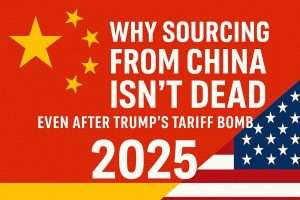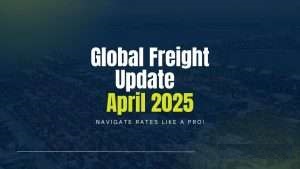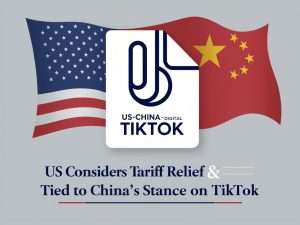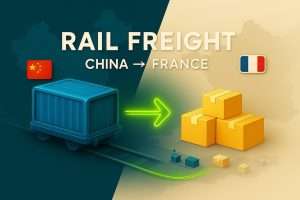If you’re an Amazon FBA seller, the Tax Cuts and Jobs Act (TCJA) is something you can’t afford to ignore.
Signed into law in December 2017, the TCJA introduced major tax changes for businesses operating in the U.S. And yes, that includes Amazon FBA sellers—whether you’re based in the U.S. or selling from overseas.
In this guide, we’re going to break down:
- What the TCJA actually changed for e-commerce businesses.
- How these tax reforms affect Amazon FBA sellers specifically.
- What strategies you can use to minimize tax liabilities and stay compliant.
Let’s dive in.
TCJA Explained: What Amazon FBA Sellers Need to Know
Before we jump into how the TCJA affects Amazon FBA sellers, let’s do a quick rundown of the biggest tax changes.
These aren’t just small tweaks—they directly impact how your FBA business is taxed, whether you’re based in the U.S. or selling from abroad.
Here are the key tax reforms you need to know:
1. Corporate Tax Rate Slashed (35% → 21%)
One of the biggest changes? The U.S. corporate tax rate dropped from 35% to 21%.
If your FBA business operates as a C-Corp, this is great news—lower tax rates mean you keep more profit.
But if you’re an LLC, S-Corp, or Sole Proprietor, this doesn’t apply directly (more on that in a bit).
2. New Tax on Foreign Payments (BEAT – Base Erosion and Anti-Abuse Tax)
Are you a non-U.S. seller or do you pay suppliers in another country?
Then BEAT is something you need to know about.
It’s a tax designed to prevent U.S. companies from shifting profits overseas. In short, if your business sends large payments to a foreign parent company or supplier, it could be taxed at a minimum rate of 10% under BEAT.
3. Changes in Tax Rules for Inventory Sales
If you store inventory in Amazon fulfillment centers across the U.S., your sales income may now be considered U.S.-sourced income.
Translation? You might owe U.S. taxes even if your business is based overseas.
This is a big deal for international sellers using Amazon FBA. If your business has inventory sitting in U.S. warehouses, you may have tax obligations in the U.S.—even if you don’t live there.
4. Stricter Rules on Business Deductions
Before the TCJA, businesses could deduct 100% of interest expenses.
Now? There’s a cap.
Under the new rules, businesses can only deduct up to 30% of their taxable income for interest expenses.
This matters a lot if you use loans to finance inventory, ads, or product launches.
5. Business Structure Matters More Than Ever
The TCJA shook up how different business structures get taxed.
Here’s what changed:
- C-Corps benefit from the lower 21% corporate tax rate.
- Pass-through entities (LLCs, S-Corps, Sole Proprietors) can get up to a 20% deduction on qualified business income (QBI).
- Foreign sellers with U.S. inventory need to be extra careful about their tax status (more on that in the next section).
Bottom Line
The TCJA completely changed the tax game for Amazon FBA sellers.
If you’re a U.S.-based seller, your tax bill might have dropped—or your deductions might have shrunk.
If you’re an international seller, you might be facing new U.S. tax liabilities.
Either way, you need to adapt your tax strategy to stay compliant and keep more of your hard-earned profits.
Next up, let’s break down how these changes directly impact Amazon FBA sellers—both in the U.S. and abroad.
How the TCJA Affects U.S.-Based Amazon FBA Sellers
If you run an Amazon FBA business in the U.S., the Tax Cuts and Jobs Act (TCJA) brought some big changes to how you’re taxed.
Some of these changes work in your favor (lower corporate tax rates, better deductions).
Others? Not so much (new limits on state and local tax deductions).
Here’s what you need to know.
1. Corporate Tax Cut = Big Win for C-Corps
Before the TCJA, C-Corporations were taxed at a brutal 35%.
Now? That rate has been slashed to 21%.
✅ If your Amazon FBA business operates as a C-Corp, this means you keep more of your profits.
✅ This is especially good if you reinvest heavily into inventory, marketing, or growth.
🚨 But here’s the catch: C-Corps still face double taxation (corporate tax + dividend tax if you pay yourself).
Key takeaway: If you’re a high-revenue seller reinvesting in growth, a C-Corp might now be worth considering.
2. LLCs & S-Corps Get a New 20% Deduction
Not a C-Corp? No problem.
The TCJA introduced a new 20% deduction for pass-through entities like:
✅ LLCs
✅ S-Corps
✅ Sole Proprietorships
Here’s how it works:
If your FBA business makes $100,000 in qualified income, you only pay taxes on $80,000 (after the 20% deduction).
Sounds great, right?
🚨 But there are restrictions:
- The deduction phases out for high-income earners ($170K+ for single filers, $340K+ for married).
- Certain service businesses don’t qualify (lawyers, consultants, etc.).
Key takeaway: If you run your FBA business as an LLC or S-Corp, this is free money—use it.
3. You Can Deduct More Business Expenses (Immediately)
Before the TCJA, businesses had to spread out deductions for major expenses over several years.
Now? You can deduct 100% immediately on things like:
✅ Software (inventory management tools, automation tools).
✅ Packaging & shipping equipment.
✅ Warehousing & logistics investments.
Key takeaway: If you plan to scale up your FBA business, these deductions can save you thousands.
4. New State & Local Tax (SALT) Limits = Bad News for Multi-State Sellers
If you sell in multiple states (which most Amazon FBA sellers do), this one hurts.
Before the TCJA, you could deduct 100% of your state and local taxes (SALT) from your federal taxes.
Now? There’s a $10,000 cap on SALT deductions.
Who does this affect the most?
🚨 Sellers in high-tax states like California, New York, and New Jersey.
🚨 Multi-state sellers who have to pay state taxes in multiple jurisdictions.
Key takeaway: If you sell nationwide, your total tax bill might go up—time to look at tax-efficient business structures.
What This Means for U.S. FBA Sellers
The TCJA brought some huge tax savings (lower corporate rates, new deductions).
But it also introduced new tax planning challenges (SALT cap, phase-outs for deductions).
📌 If you’re a high-revenue seller reinvesting in growth → C-Corp might be the way to go.
📌 If you’re running a smaller LLC or S-Corp → Use the 20% deduction while you can.
📌 If you operate in multiple states → Watch out for the SALT cap.
Next, let’s talk about non-U.S. sellers using Amazon FBA—because the TCJA hits them in a very different way.
How the TCJA Affects Non-U.S. Amazon FBA Sellers
If you’re an international seller using Amazon FBA, the Tax Cuts and Jobs Act (TCJA) made some major changes that could affect how much tax you owe in the U.S.
The biggest issue? You might now owe taxes in the U.S.—even if you don’t live there.
Here’s how.
1. You Might Owe U.S. Taxes (Even as a Foreign Seller)
Under the TCJA, if your income is classified as “Effectively Connected Income” (ECI) to the U.S., you must pay U.S. taxes—just like a domestic seller.
🔹 What qualifies as ECI?
✅ Selling products with inventory stored in U.S.-based Amazon warehouses.
✅ Having employees, contractors, or agents working for you in the U.S.
✅ Engaging in regular, ongoing business activity within the U.S.
🔹 What happens if your business is classified as ECI?
🚨 You must file a U.S. tax return (Form 1120-F for foreign corporations).
🚨 You could be subject to federal and state income taxes, just like a U.S.-based seller.
Key takeaway: If you store inventory in Amazon’s U.S. warehouses, you might be taxable in the U.S.—even if your company is registered abroad.
2. Permanent Establishment (PE) Risk: Are You “In Business” in the U.S.?
One of the biggest fears for foreign sellers is triggering Permanent Establishment (PE) status.
Why?
Because if your business has a permanent presence in the U.S., you may owe U.S. corporate taxes (21%) on your profits.
🚨 The TCJA clarified that using Amazon warehouses could count as PE.
🚨 That means if you store your inventory in FBA warehouses, the IRS might see that as a U.S. business presence.
✅ How to avoid PE?
- Set up your company in a tax-friendly country with a U.S. tax treaty.
- Use third-party logistics providers (3PLs) instead of Amazon FBA warehouses.
- Structure your sales through a different legal entity to limit exposure.
Key takeaway: If you store inventory in the U.S., talk to a tax expert about whether you’re at risk for Permanent Establishment.
3. BEAT Tax: How the U.S. Targets Foreign Payments
The Base Erosion and Anti-Abuse Tax (BEAT) was created to prevent businesses from shifting profits out of the U.S.
🔹 Who does it affect?
- Foreign sellers making large payments to foreign parent companies or suppliers.
- U.S. subsidiaries of foreign-owned businesses.
🔹 How does it work?
- If a company pays a foreign entity (like a parent company or supplier) a large amount, the IRS may apply a 10% tax on those payments.
✅ How to avoid BEAT?
- Keep your U.S. profits within the U.S. instead of sending them offshore.
- Work with a U.S.-based payment processor instead of an international one.
Key takeaway: If you run a foreign-owned FBA business, BEAT could increase your tax bill.
4. Tax Treaties: Some Countries Get a Better Deal
Good news: If your country has a tax treaty with the U.S., you might avoid double taxation.
🔹 Countries with favorable tax treaties (examples):
✅ Canada
✅ UK
✅ Germany
✅ France
🚨 Countries with NO tax treaty (higher risk of U.S. taxes):
❌ Hong Kong
❌ Taiwan
❌ Singapore
✅ How to use tax treaties to your advantage?
- Check your country’s treaty rules to see if you qualify for lower tax rates.
- If your country doesn’t have a treaty, consider setting up a company in a treaty-friendly location.
Key takeaway: Some countries have better tax agreements with the U.S.—know where you stand.
5. How to Minimize U.S. Tax Exposure as a Foreign Seller
If you’re selling on Amazon FBA from outside the U.S., here’s how to legally reduce your tax burden:
✅ Use a tax-friendly business structure
- Consider registering your company in a tax-efficient country (e.g., UAE, Hong Kong, Singapore).
✅ Avoid storing inventory in U.S. warehouses
- Use fulfillment centers outside the U.S. (FBA in Canada, Europe, or Mexico).
✅ Work with an international tax expert
- Get a custom tax strategy that aligns with your business model.
What This Means for Non-U.S. Amazon FBA Sellers
The TCJA changed the game for international Amazon sellers.
📌 If your business has inventory in the U.S., you might owe U.S. taxes.
📌 If your country has a tax treaty with the U.S., you might avoid double taxation.
📌 If you make large payments to foreign suppliers, BEAT could apply to you.
Bottom line? If you’re a non-U.S. Amazon seller, you need a tax strategy now—before you get hit with unexpected U.S. tax bills.
Next, let’s talk about what FBA sellers can do to stay compliant while keeping more of their profits.
How Amazon FBA Sellers Can Adapt to TCJA Changes
By now, you know that the Tax Cuts and Jobs Act (TCJA) changed the tax landscape for Amazon FBA sellers—whether you’re based in the U.S. or selling from abroad.
The big question: How do you adapt?
Here’s a step-by-step strategy to optimize your tax structure, manage payments efficiently, and stay compliant.
A. Optimizing Your Business Structure
The way your business is structured can make a huge difference in your tax bill.
1. Choose the Right Tax Entity
Your business entity determines how much tax you pay and where you pay it. Here’s a quick breakdown:
✅ C-Corp (U.S.-based sellers) – Pays a flat 21% corporate tax. Great for high-revenue businesses reinvesting profits.
✅ LLC / S-Corp (U.S. sellers) – Can benefit from the 20% pass-through deduction. Ideal for small-to-medium sellers.
✅ Foreign Entity (Non-U.S. sellers) – Limits U.S. tax liability if structured correctly.
🚨 Mistake to avoid: Registering in the wrong jurisdiction and triggering unnecessary U.S. tax obligations.
2. Use Foreign Subsidiaries to Lower Tax Exposure
If you’re a non-U.S. seller, setting up a foreign entity can help reduce your U.S. tax obligations.
Example:
✅ A seller from Germany creates a Hong Kong company that handles Amazon sales. Since Hong Kong has low corporate taxes and no VAT, the seller pays fewer taxes overall.
🚨 Warning: Some countries don’t have tax treaties with the U.S. (like Hong Kong or Singapore). If your foreign entity is based in one of these places, you may still owe U.S. taxes.
3. Avoid Permanent Establishment (PE) in the U.S.
If your business is considered to have a Permanent Establishment (PE) in the U.S., you may owe corporate taxes on your total profits.
✅ How to avoid PE risk?
- Don’t store inventory in U.S. Amazon warehouses (use alternative fulfillment centers in Canada, Mexico, or Europe).
- Use third-party logistics (3PLs) instead of Amazon FBA to avoid triggering a taxable U.S. presence.
- Separate your U.S. operations from your main company using a different legal entity.
Key takeaway: Structure your business correctly from the start to avoid unnecessary taxes.
B. Managing Financial Transactions and Payments
Even if you have the right business structure, how you move money matters.
1. Minimize Intra-Group Payments to Avoid BEAT
If you send large payments to a foreign parent company or supplier, the IRS may apply the Base Erosion and Anti-Abuse Tax (BEAT)—a 10% tax on outbound payments.
✅ How to avoid BEAT?
- Keep U.S. profits within the U.S. to avoid triggering tax penalties.
- Use U.S.-based payment processors to limit international transactions flagged by the IRS.
🚨 Mistake to avoid: Moving large sums of money between U.S. and foreign accounts without a structured tax strategy.
2. Optimize Supply Chain Operations to Lower U.S. Tax Obligations
If your business is dependent on U.S. suppliers or warehousing, you might owe more in U.S. taxes.
✅ How to optimize your supply chain?
- Work with non-U.S. suppliers whenever possible to limit U.S. tax exposure.
- Store inventory in multiple countries (FBA in Canada, Europe, or Mexico) to avoid unnecessary U.S. tax obligations.
3. Use Specialized E-Commerce Tax Services
Amazon FBA taxes are complicated—but the right accountant can save you thousands.
✅ Who can help?
- E-commerce tax experts who understand Amazon FBA, cross-border taxation, and international VAT.
- CPAs specializing in Amazon sellers (not just general accountants).
🚨 Mistake to avoid: Assuming a regular CPA can handle FBA-specific tax issues (most can’t).
C. Ensuring Compliance and Avoiding Audits
Amazon shares your sales data with tax authorities. That means staying compliant isn’t optional—it’s critical.
1. Report Income Correctly to Avoid IRS Audits
If you’re a U.S. seller, you must report all income earned through Amazon (even if it’s reinvested in inventory).
If you’re a foreign seller and Amazon withholds U.S. taxes on your behalf, you still need to file a tax return.
✅ Best practices:
- Match your Amazon sales reports to your tax filings.
- Keep detailed records of expenses to maximize deductions.
🚨 Mistake to avoid: Not filing a return because “Amazon already took care of the tax.” The IRS still expects a filing.
2. Keep Up with Tax Law Changes (Especially in 2025)
Tax laws change every year—and 2025 will bring new rules.
✅ How to stay ahead?
- Follow e-commerce tax experts on LinkedIn or YouTube.
- Subscribe to Amazon seller forums for tax updates.
- Work with a tax professional to adjust strategies as laws change.
🚨 Mistake to avoid: Ignoring tax updates and getting blindsided by new IRS regulations.
3. Hire a Tax Professional Before You Get Audited
If your business is growing, it’s time to stop doing your own taxes.
✅ A good tax advisor can:
- Help you pick the best tax structure for your business.
- Reduce your tax liability using legal deductions and strategies.
- Ensure full compliance so you never get hit with penalties.
🚨 Mistake to avoid: Waiting until after you get audited to hire an accountant.
Final Thoughts: How to Stay Tax-Smart as an Amazon FBA Seller
📌 Pick the right business structure (C-Corp, LLC, or foreign entity) to minimize taxes.
📌 Be smart with payments to avoid BEAT and excessive U.S. tax exposure.
📌 Stay compliant—Amazon reports your sales, and tax authorities are watching.
Bottom line? The TCJA changed the tax game, but if you structure your business correctly, you can keep more of your profits while staying 100% compliant.
Next Steps:
🚀 Talk to an e-commerce tax specialist to see how these tax laws apply to you.
🚀 Review your FBA operations to make sure you’re not overpaying in taxes.
🚀 Optimize your tax structure today—before tax season catches up with you.
Conclusion: What the TCJA Means for Amazon FBA Sellers (And How to Stay Ahead)
The Tax Cuts and Jobs Act (TCJA) changed the tax game for Amazon FBA sellers—whether you’re based in the U.S. or selling internationally.
Some changes work in your favor (lower corporate tax rates, better deductions).
Others? Not so much (new compliance requirements, higher risks for foreign sellers).
Let’s do a quick recap.
Key TCJA Changes for Amazon FBA Sellers
✅ Corporate Tax Rate Drop (35% → 21%) → Huge win for U.S.-based C-Corps.
✅ 20% Pass-Through Deduction → Big savings for LLCs and S-Corps.
✅ Immediate Expense Deductions → Faster write-offs for software, packaging, and warehousing.
🚨 Permanent Establishment (PE) Risks → Foreign sellers using Amazon FBA may owe U.S. taxes.
🚨 Base Erosion and Anti-Abuse Tax (BEAT) → Foreign-owned businesses face new restrictions on profit shifting.
🚨 State & Local Tax (SALT) Cap → Multi-state sellers lose some valuable deductions.
Why Amazon FBA Sellers Must Adapt Now
Amazon is not a passive income stream—and the IRS knows it.
📌 If your business structure isn’t optimized, you’re leaving money on the table.
📌 If you’re a foreign seller storing inventory in the U.S., you could owe more taxes than you think.
📌 If you ignore tax compliance, you risk penalties, audits, and unnecessary tax bills.
Simply put: You need a tax strategy—or you’ll pay more than you should.
How to Stay Compliant (While Keeping More Profits)
Here’s what you should do today to make sure your FBA business is tax-optimized:
🚀 Pick the right business structure → C-Corp, LLC, or foreign entity? Choose wisely.
🚀 Minimize unnecessary U.S. tax exposure → Watch out for Permanent Establishment risks.
🚀 Use e-commerce tax professionals → Amazon FBA taxes are complex—get expert help.
🚀 Stay up to date with tax law changes → 2025 could bring new regulations.
Win the Tax Game, Keep More Profits
Amazon FBA is one of the best ways to build a scalable e-commerce business.
But taxes? They can make or break your margins.
The good news?
If you set up your business correctly, manage payments strategically, and stay compliant, you can keep more of your hard-earned profits—while avoiding tax headaches.
The TCJA rewarded smart tax planning.
The question is: Are you taking advantage of it?
📌 Next step? Talk to a tax pro and start optimizing today. 🚀
FAQ: TCJA & Amazon FBA Taxes – What Sellers Need to Know
1. How did the TCJA change taxes for Amazon FBA sellers?
The TCJA introduced several key changes that impact Amazon sellers. The corporate tax rate dropped from 35% to 21%, which benefits businesses registered as C-Corps. LLCs and S-Corps now qualify for a 20% pass-through deduction on taxable income, reducing the tax burden for many small and medium-sized sellers. The law also introduced immediate deductions for expenses like software, warehousing, and packaging, allowing businesses to deduct investments more quickly. However, the TCJA also tightened regulations for international sellers, increasing the risk of being taxed in the U.S. if they store inventory in Amazon fulfillment centers.
2. Do I need to change my business structure because of the TCJA?
The impact of the TCJA on your business structure depends on factors like revenue, profitability, and future growth plans. C-Corps benefit from the lower 21% corporate tax rate, making them attractive for sellers reinvesting profits. LLCs and S-Corps, on the other hand, can take advantage of the 20% pass-through deduction, which reduces taxable income. Foreign sellers may need to reconsider their structure to avoid unnecessary U.S. tax obligations. Since every business is different, consulting a tax advisor is the best way to determine whether a change is necessary.
3. I’m an international seller—do I have to pay U.S. taxes now?
It depends on how your business operates. If you store inventory in U.S.-based Amazon fulfillment centers, your income may be classified as “Effectively Connected Income” (ECI), which means you could be required to file a U.S. tax return and pay taxes. The IRS may also consider your business to have a “Permanent Establishment” in the U.S., further increasing tax liability. However, tax treaties between the U.S. and certain countries can help reduce or eliminate double taxation. Sellers who want to minimize their U.S. tax exposure should consider alternative warehousing strategies or restructuring their businesses.
4. What is the BEAT tax, and does it affect Amazon FBA sellers?
The Base Erosion and Anti-Abuse Tax (BEAT) is designed to prevent businesses from shifting profits out of the U.S. by making large payments to foreign affiliates. It mainly affects large multinational corporations, but some foreign-owned Amazon FBA businesses could be impacted. If a business frequently transfers money between a U.S. entity and a foreign parent company, it may be subject to additional taxation under BEAT. The best way to avoid this issue is to work with a tax professional to structure financial transactions in a way that minimizes exposure.
5. Can I still deduct business expenses under the TCJA?
Yes, but the rules have changed. The TCJA allows Amazon sellers to deduct 100% of certain business expenses immediately, rather than spreading them out over multiple years. This includes expenses related to software, warehouse storage, packaging, and shipping materials. However, new limits have been placed on state and local tax (SALT) deductions, which could increase tax burdens for sellers operating in high-tax states like California and New York. To maximize deductions, sellers should track expenses carefully and consult a tax professional to ensure they are taking full advantage of available write-offs.












